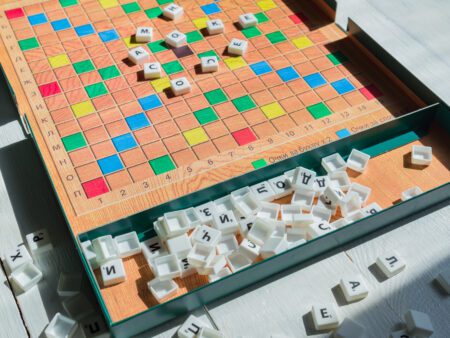Enhance your poker skills with valuable tips and tricks to improve your gameplay. From mastering poker basics to analyzing hands, learn how to boost your performance at the table.
Poker Tips and Tricks: Boost Your Skills at the Table
Introduction
Are you looking to up your poker game and take your skills to the next level? Whether you’re a beginner or an experienced player, understanding effective poker strategies can significantly improve your chances of winning. In this article, we will provide you with valuable tips and tricks to help you enhance your poker skills at the table.
Mastering Poker Basics
Before diving into advanced strategies, it’s important to have a solid foundation of poker basics. Familiarize yourself with the different poker hands, betting rounds, and game variations. Understanding hand rankings, pot odds, and positional play will give you an edge over your opponents.
Practice playing poker online or with friends to gain experience and develop your own playing style. Observe successful players and analyze their tactics to see what works best for you.
Understanding Table Dynamics
Poker is not only about the cards you hold but also the dynamics at the table. Pay attention to your opponents’ playing styles, betting patterns, and body language. Look for patterns or tells that can give away the strength of their hands.
Adapt your strategy based on the table dynamics. If you’re playing with aggressive players, tighten up your starting hand requirements and play more conservatively. Against passive players, be more aggressive and exploit their weaknesses.
Managing Your Bankroll
One essential aspect of playing poker is proper bankroll management. Set a budget for yourself and stick to it. Avoid playing with money you can’t afford to lose.
Divide your bankroll into smaller units to minimize your risk and maximize your playing time. As a general rule, it’s recommended to have at least 20 buy-ins for cash games and 40 buy-ins for tournaments.
Analyzing Poker Hands
To improve your decision-making skills, analyze your poker hands after each session. Reflect on your thought process, evaluate your choices, and identify any mistakes or missed opportunities.
Consider using hand analysis software or online forums to get feedback from experienced players. Discussing hands with others can provide valuable insights and perspectives that help you grow as a player.
Bluffing and Deception
Bluffing is an integral part of poker, but it should be used strategically and selectively. Don’t bluff just for the sake of it; instead, bluff when the circumstances are favorable.
Study your opponents and their tendencies to determine if they are likely to fold to a bluff. Use deception by occasionally showing strong hands when you have bluffed to create uncertainty among your opponents.
Managing Tilt and Emotions
Poker can be an emotional game, and managing tilt is crucial for success. Tilt refers to losing control of your emotions and making irrational decisions due to frustration or anger.
Recognize the signs of tilt and take break when necessary. Stay focused, maintain discipline, and play within your comfort zone. Don’t let emotions cloud your judgment or affect your decision-making.
Continuously Learning and Improving
Poker is a game of constant learning and improvement. Stay updated with the latest poker strategies and trends by reading books, articles, and online forums.
Watch professional poker tournaments and analyze the strategies employed by top players. Attend poker workshops or hire a coach to further enhance your skills.
Conclusion
By implementing these poker tips and tricks, you can boost your skills at the table and enhance your overall gameplay. Remember to always play responsibly, enjoy the game, and never stop learning. Good luck!










